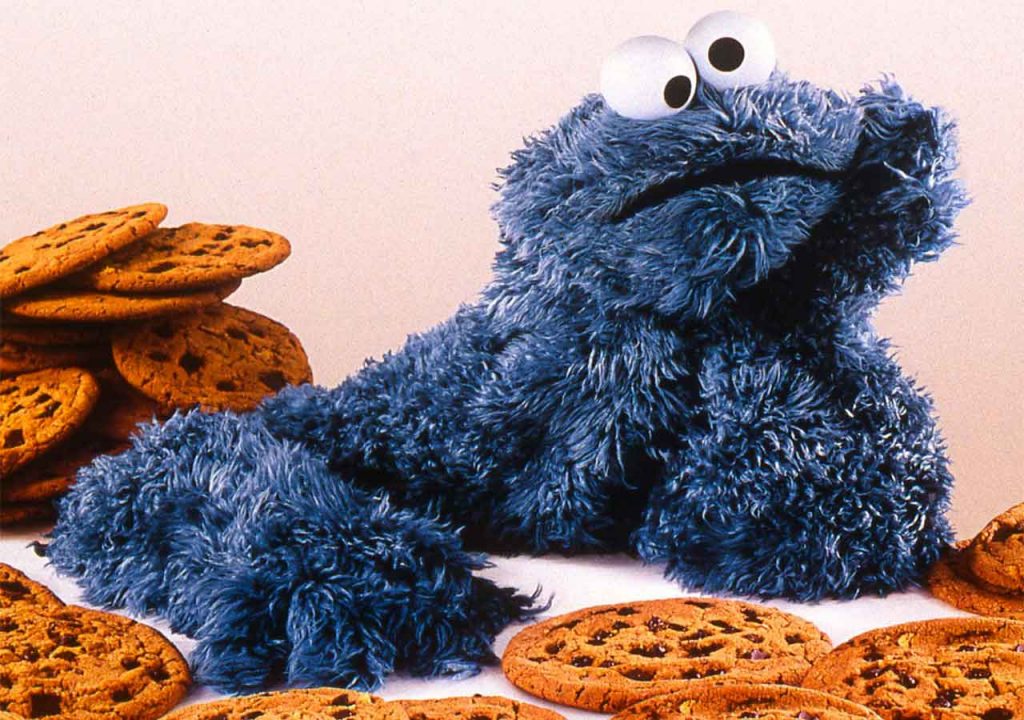
By
It’s official. If you’re keeping up with the latest science, you know that the gut is inexorably linked to the brain. This year researchers found a correlation between depression and mood swings in men and high sugar intake.1 Last year a study showed probiotics could help with reducing the risk of depression.2 A growing body of evidence is proving that healthy people’s microbiota has a lot in common with other healthy people’s microbiota, and diseased people’s micro-biota also have common traits.3 They’ve been talking about how the gut may affect the brain and the immune system more and more for the last 20 years. Mainstream medicine is slowly figuring out that our gut’s microflora correlates directly with our health, and sugar and other junk foods do not promote healthy gut bacteria.
World’s First Trial Shows Improving Diet Can Treat Major Depression
Depression is one of the world’s most prevalent and costly medical disorders. It may be surprising to read “World’s First” in regards to a trial study establishing a link between diet and depression, as many would guess that this kind of study has done before. It hasn’t been, but headlines proclaiming that healthier diets may decrease the risk of depression have been appearing in the news more frequently. That is the work of Director of Deakin’s Food and Mood Centre Professor Felice Jacka and her team. She’s published numerous epidemiological (survey-based) studies reporting that eating an unhealthy diet shows you are more likely to be depressed. The studies were based on questionnaires. They were not actual diet experiments. They have simply educated guesses that hadn’t been tested in the real world yet. Until now.
Professor Jacka said the results of her team’s new study may offer a better approach to depression.
We’ve known for some time that there is a clear association between the quality of people’s diets and their risk for depression.
This is the case across countries, cultures and age groups, with healthy diets associated with reduced risk, and unhealthy diets associated with increased risk for depression.
However, this is the first randomised controlled trial to directly test whether improving diet quality can actually treat clinical depression.” – Professor Jacka
The Study Details
Professor Jacka’s team recruited 67 men and women. The participants had severe depression and also reported eating a relatively unhealthy diet. Most of them were taking antidepressants and/or were in regular psychotherapy.
Half of the participants adhered to a Mediterranean diet while they attended dietary support sessions with a nutritionist. The others continued eating as usual (unhealthy), but they were required to attend social support “befriending” sessions. Everyone’s depression symptoms were graded using several different tests.
Encouraged foods included: whole grains, fruits, vegetables, legumes, low-fat/ unsweetened dairy, raw unsalted nuts, lean red meat, chicken, fish, eggs, and olive oil
Discouraged foods included: Sweets, refined cereals, fried food, fast food, processed meat.
Beverage information: maximum two sugar-sweetened beverages per week and maximum two alcoholic drinks per day, preferably red wine.
The Study Results
People in the unhealthy diet group improved a statistically insignificant amount, and those in the healthy diet group improved their symptoms with a full third of them fully reversing their depression. It’s also important to note that this was done with conventionally accepted dietary protocols. It should be noted that these “healthy” diets are not that healthy. Imagine the results a more radical approach could have achieved.
How & Why (gut bacteria, B vitamins, etc.)
In another study, scientists from McMaster University wanted to test how mice with different gut bacterial conditions deal with stress.4
The baby mice were stressed from 3 to 21 days old by being separated from their mother for 3 hours each day. This experiment was conducted with mice that had different gut bacterial conditions. One group of mice was grown completely free of bacteria in their guts and kept in a sterile room to prevent bacteria from affecting their behaviors (germ-free mice). The other group were regular mice that were exposed to an ordinary, complex range of bacteria. The last group was a germ-free control group that hadn’t been separated from their mothers. The baby mice with normal gut microbiomes that had been subjected to early-life stress showed an unusual increase in the stress hormone corticosterone. They also exhibited signs of depression as well as anxiety. The germ-free mice, meanwhile, behaved similarly to the control mice, showing no symptoms of anxiety or depression. It is interesting to note that these mice also had elevated levels of corticosterone, just not symptoms of depression. Naturally, the control group showed no elevated stress hormone or altered behavior.”
These results indicate that the bacteria in our environment contribute to our mental health and behavior.
Next, they exposed the germ-free mice to bacteria taken from the stressed group. As the bacterial composition of the germ-free mice changed, so did their metabolic activity and their behavior. After a few weeks, the previously symptom-free mice were now showing signs of depression. Finally, the researchers wanted to see how the control group reacted when they were exposed to bacteria from the stressed mice. In this situation, the mice didn’t start showing symptoms of depression at all.” – IFLS
Our brains are running off of the energy our gut and our lungs are producing. If our gut is producing an unhealthy chemical environment, this effects the whole body including the brain.
Depression Free Diet & Lifestyle
Eat Right
Stop eating sugar and processed foods. Yes, the depressed brain wants to reach for the nearest comfort food (donut, pizza, what have you), but the mice have proven that’s probably the last thing you actually need. The brain and the gut are intertwined and cultivating your beneficial bacteria with raw, fresh produce; soaked and sprouted nuts; and antibiotic-free, pasture-raised meats is a necessary part of any healing process. You don’t expect a mechanic to work on your car without tools. Why expect the same from your body?
Most people reading this who are really looking for answers to help with their depression are not going to be able to take on an entirely new lifestyle filled with shopping at farmers markets and cooking all of one’s own food. Think of this is the long-term goal and take baby steps towards being more connected and in touch with your food. Also, check out How I Overcame Depression Naturally and I’m Depressed.
Stop with the germaphobia
If you carry a small bottle of disinfectant on your keychain or find yourself constantly rubbing your hands together in a strange imitation of someone over a campfire, step away from the sanitizer. You’re doing more harm than good. Most commercial sanitizers contain harmful ingredients like triclosan, parabens, and sulfates. They also contribute to the inability to fight diseases naturally.
Exposure to harmful bacteria teaches the body how to naturally fight infection. It’s why we suggest that small children spend time playing in the dirt. But antibiotics, hand sanitizers, and household cleaners have taken that away from us, along with the beneficial bacteria. Beneficial bacteria is the gatekeeper to the immune system.
Play With Nature, Get Dirty
Speaking of sticking your hands in the dirt…do it. When you’re depressed, the last thing you want to hear s some random person chirping at you about how you should “just go outside…” but seriously…do it. Vitamin D is your friend.
If you’re near water, you’re in luck. Humans respond to water on a primal level.
Exert Yourself
This one is kind of like the go outside one…you gotta do it. Make it something simple. Maybe swap getting in the car for walking somewhere instead. Play your favorite music or enjoy some people watching.
A depressed brain is likely in short supply of feel-good endorphins and neurotransmitters.
Sleep Well
Make yourself go to bed. Stop looking at your phone. In fact, take a cue from babies, nature’s original fussy sleepers. Or at least a cue from their parents – nighttime routine. No, you’re not in a onesie (are you?), but many of the tricks used by hopeful parents can be modified to help you.
Bath, with soothing essential oils (because you’re an adult now!) or other pleasing spa products? Check. Soothing music/white noise/smoothly voiced NPR podcast? Check. A ridiculous book you don’t necessarily want anyone to see you reading? Check. Momma knows best, but you’re still a grown ass adult. Have fun planning a decadent pre-bed routine. Also, check out Insomnia – A Comprehensive Look with Natural Remedies.
Supplements To Fix The Gut & End Depression
- SF722
- Abzorb
- Magnesium
- Shillington’s Intestinal Cleanse
- Shillington’s Intestinal Detox
- Biotin (B complex or Chlorella)
- Total Nutrition Formula (which has plenty of Chlorella)
Almost everyone in the world who is dealing with chronic health issues or chronic mental issues has an abundance of Candida and heavy metal toxicity, along with a lack of beneficial bacteria. Diet alone can fix this for most people, but when the head is not working well, choices don’t usually go well either. B vitamins can help alleviate depression until the healthy gut microbes develop. Good fats (click here) are a must for people who can’t assimilate Bs properly. For those dealing with depression, a diet rich in B vitamins and healthy fats is a very good start. Supplements can be used to accelerate healing and eliminate all the other ailments and used to kill Candida and promote healthy bacteria.
SF722
This is my favorite for killing anything fungal, but it also works on parasites and other pathogens. If you have had yeast infections, athlete’s foot, see floaters, have BO, or eat the way everyone in modern countries do, you’ll want this supplement. There are tons of other choices for killing yeast (click here), but I don’t know of anything that does a better job for the money than SF722. Candida can become fairly immune to many other antimicrobials but studies have shown that this does not happen with SF722.
Probiotics
Probiotics help fix everything int he gut, including breaking down and removing things that shouldn’t be there, like heavy metals. A healthy gut detox the body all the time. Often touted as the cure everything supplement for the well-informed, probiotics are something most everyone is familiar with these days. What most do not know is that the vast majority of probiotic supplements on the market are ineffectual at best, and many actually feed yeast. How the probiotics are processed and preserved make all the difference. It’s not an easy task to produce good probiotics; our stomach acid is designed to kill it. Two of my favorites are FloraMend and Bio-K (the latter is not available in our store, but it is at most health food stores and Whole Foods). I don’t recommend taking a probiotic with antimicrobials. A really good probiotic should come out on top, but you are reducing its effectiveness when you combine it with compounds that kill. For instance, I would take SF722 all day and a probiotic at night and early morning, or vice versa, where I take the probiotic with food and the SF722 late and early. Different digestive issues can favor one over the other so try both ways and see what works for you.
Don’t take them with antimicrobials, and make sure they are high-quality supplements. Anyone without an appendix should take a probiotic every day with every major meal for the rest of their life. Your appendix secretes out beneficial bacteria when you don’t have enough. Take them on an empty stomach as noted or with food to help digest food inside the gut. I recommend mixing it up each day, but I do recommend caution when taking systemic enzymes. Too many systemic enzymes can cause issues, they can start to eat away at the body, so I don’t just grab a big handful like I do with SF722. I personally take 4-6 a day on an empty stomach, and I take more with food as needed.
One antimicrobial you can take with probiotics is olive leaf extract. It’s great for maintenance but it’s not a yeast serial-killer like SF722 (otherwise it would damage the probiotic). It’s a fine supplement, and but it’s not going to do much of anything all by itself. I like Abzorb best right now for a probiotic. For more on systemic enzymes click here.
Magnesium
Magnesium is an old home remedy for all that ails you, including ‘anxiety, apathy, depression, headaches, insecurity, irritability, restlessness, talkativeness, and sulkiness.’ In 1968, Wacker and Parisi reported that magnesium deficiency could cause depression, behavioral disturbances, headaches, muscle cramps, seizures, ataxia, psychosis, and irritability – all reversible with magnesium repletion.” – Psychology Today
A small study reported that over-the-counter magnesium tablets significantly improve depression in just a couple of weeks.11
Magnesium is a foundational supplement, like calcium. In the modern world, there is a tendency to become deficient in this vital mineral, and this effects every single function of the body! Not having enough magnesium is like not having enough oil in the car. Something is going to break down sooner or later, and in the meaning time, things will not be running as well as they should.
Poop Easy
For some, the gut needs more help to eliminate properly. Everyone should defecate once for every meal, and maybe once or twice more for those who also snack on lots of calories throughout the day like I do. Shillington’s Intestinal Cleanse is the best I know of for healing the gut, killing parasites that may reside within, and getting the bowels regular. Shillington’s Intestinal Detox helps eliminate heavy metals and anything positively charged (like most pathogens), and it slows down and firms up stools. It also helps heal the gut and rebuild a healthy biofilm. Together the two supplements have synergistic properties, and they can be taken together to help balance the gut. It’s a very effective combination, but if the budget is tight, get the one that suits your needs. Note that if you have chronic constipation and have not tried magnesium yet, Shillington’s Intestinal Cleanse may not be necessary with a good magnesium supplement.
Conclusion
We rely on bacteria to survive and yet many aspire to live in an antibacterial world. We know certain heavy metals are incredibly toxic to us, but we excuse them in vaccinations and light bulbs and sushi. Most of us know that fresh, raw vegetables pull our heavy metal toxins, but we grow conventional vegetables with such a heavy toxic load that they no longer have their natural chelation properties. For most people, when it’s all said and done, our physical well being affects our mental well being more than anything else in our lives. Our entire body is built on what we eat. Our heart, our gallbladder, our appendix, our fingers, our eyes, our noise, our brain – they all need the right nutrition to function properly. Nothing in the body gets healthy and stays healthy for long without fixing the gut first, and that includes the brain. If you’re looking for the easiest thing you can do, a little baby-step just to get you started, get the SF722and Abzorb and some B vitamins. I can’t stress enough how much almost everyone in any modern country could use SF722 to help fix the gut. Get some sunlight or a D vitamin and some good fats. Start squatting every day, just a few to start with and build up daily. And get into some nature, be it walking or gardening or whatever. Another good option would be CBD oil. It’s showing a lot of promise with depression.
Disclaimer: We at Prepare for Change (PFC) bring you information that is not offered by the mainstream news, and therefore may seem controversial. The opinions, views, statements, and/or information we present are not necessarily promoted, endorsed, espoused, or agreed to by Prepare for Change, its leadership Council, members, those who work with PFC, or those who read its content. However, they are hopefully provocative. Please use discernment! Use logical thinking, your own intuition and your own connection with Source, Spirit and Natural Laws to help you determine what is true and what is not. By sharing information and seeding dialogue, it is our goal to raise consciousness and awareness of higher truths to free us from enslavement of the matrix in this material realm.
 EN
EN FR
FR


























